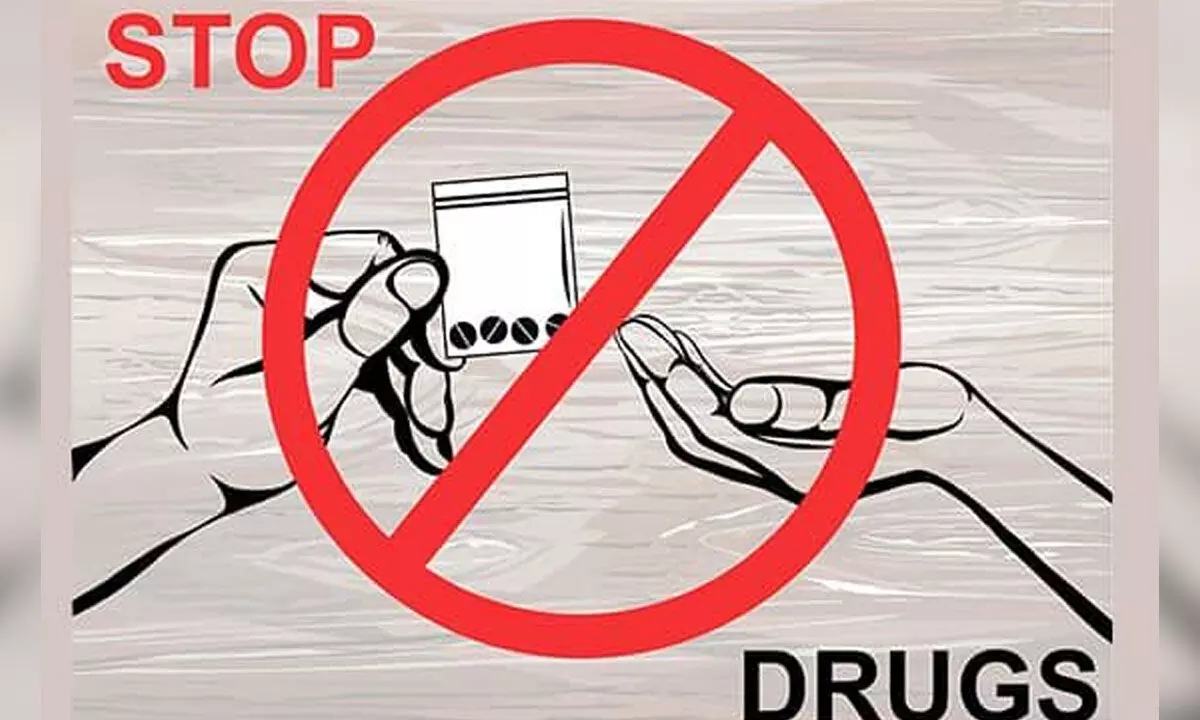Weaning young minds away from drugs

Keeping in view the increasing drug consumption in Telangana state, particularly Hyderabad, the Government of Telangana has taken many measures to control drug menace by constituting Telangana Anti Narcotic Bureau (T-NAB).
Keeping in view the increasing drug consumption in Telangana state, particularly Hyderabad, the Government of Telangana has taken many measures to control drug menace by constituting Telangana Anti Narcotic Bureau (T-NAB). The T-NAB conducted raids at different places in Hyderabad and found random use of different drug substances including Ganja. A few days ago students from different colleges in and around Hyderabad were also identified as drug consumers and booked by T-NAB.
In order to control the consumption of drug substances, the Commissioner of School Education has recently ordered constitution of “Prahari Clubs” in all high schools, offering a framework to wean the children away from drugs, and also to put a stop to selling of drugs in surrounding areas of schools/educational institutions, and this initiative needs to be looked critically with special focus on its direct and indirect impact on children.
As a teacher and a parent, in my opinion, the idea of setting up anti-drug trafficking clubs in schools might initially seem like a positive step to tackle the drug problem. However, this strategy could unintentionally arouse curiosity among students, leading to unforeseen issues. Introducing anti-drug clubs might unintentionally highlight drugs as a major topic among students. Teenagers are inherently curious, and when exposed repeatedly to discussions about drugs, even negatively, it can spark their interest. The constant emphasis on drugs might lead some students to wonder about their significance and tempt them to experiment just to satisfy their curiosity. Secondly, the activities and discussions in these clubs could provide more details than necessary.
While the goal is to educate students on the dangers of drugs, detailed information about different types of drugs, their effects, and trafficking methods could inadvertently act as a guide for some impressionable students. Instead of deterring them, it might give them knowledge that they shouldn’t have. Moreover, the establishment of such clubs might stigmatize students. Those who join these clubs might be labelled by their peers as either potential drug users or as overly concerned individuals. This labelling could create social divisions and pressure among students, which is counterproductive to the educational environment. The idea is more suitable for junior and degree college students.
Instead of creating these clubs, a more effective approach could be to: incorporate drug education subtly and appropriately into the existing curriculum; collaborate with trained professionals to conduct occasional workshops on the dangers of drug use without making it a central theme of school activities; sensitise and train teachers to detect signs of drug/substance use and offer effective counseling; and, create a supportive and understanding environment to reduce the appeal of drugs as an escape mechanism.
While the intention behind anti-drug trafficking clubs is commendable, I feel the potential risks of heightening student curiosity and providing unnecessary information outweigh the benefits. Hiring professionals to conduct awareness campaigns would be much more effective for sensitising students rather than letting them take on a central role. A vigilant committee by the school management can help more than involving students. Therefore, there is a high need for the government to reconsider the decision of formation of Prahari Clubs in schools. A consultation process with the schools management can help the government and police department to chart out an action plan to address the drug menace more effectively.
(Writer is a teacher and action coordinator at Focus High School, Darulshifa, Hyderabad)











